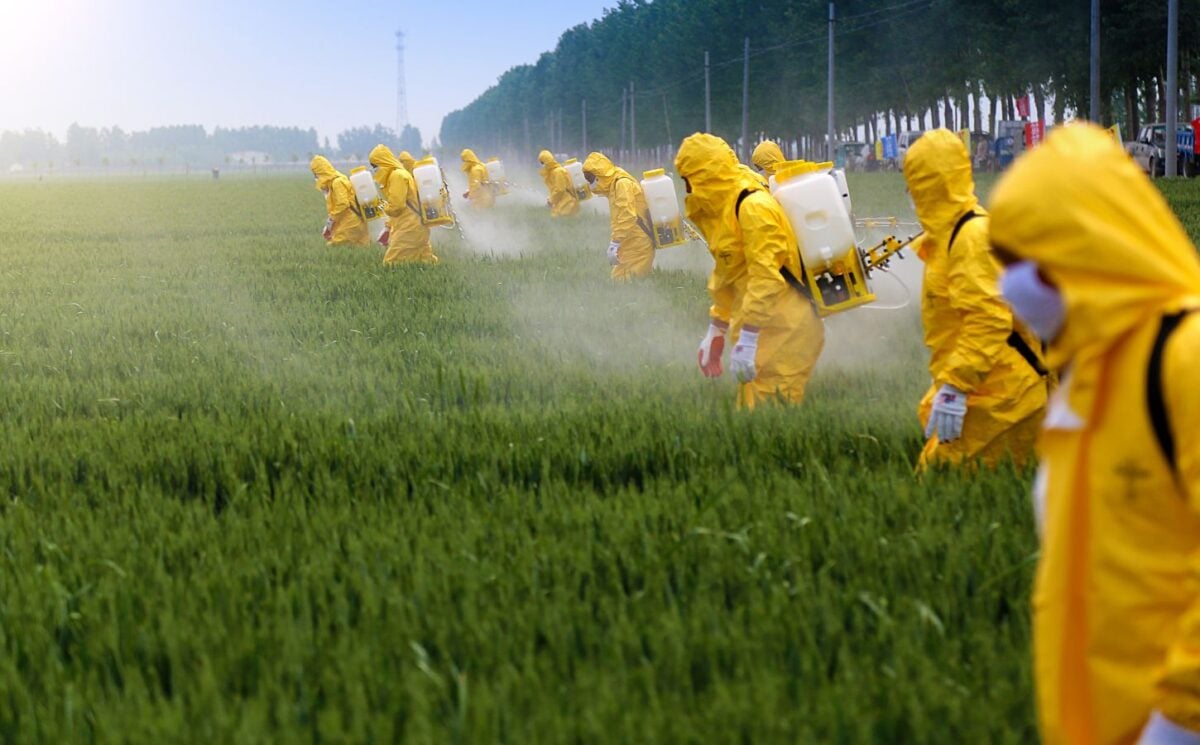A new report finds that pervasive chemical toxicity “threatens human and planetary survival.”
Its authors analyzed “countless” peer-reviewed studies and conducted more than 50 interviews with experts. They link the “largely underestimated” impacts of chemical toxicity with increasing rates of cancer and chronic diseases, declining fertility, and ecosystem damage, making it a “threat to the thriving of humans and nature of a similar order as climate change.”
Read more: Fruits And Vegetables Could Help Protect Reproductive Function From Microplastics, Study Finds
Deep Science Ventures (DSV) produced the report, which is titled Toxicity: The Invisible Tsunami. It identifies three “opportunity areas” that demand solutions: pesticides (herbicides and insecticides); food contact materials (such as packaging); and personal care products.
Over 3,600 synthetic chemicals from food contact materials are found within human bodies, while more than 90 percent of the global population is exposed to air pollution exceeding World Health Organization (WHO) guidelines. The report noted that PFAS have now “contaminated the entire world,” with levels in rainwater often exceeding safe limits.
Meanwhile, the impact of pesticide use on cancer “may rival that of smoking.” The report links exposure to leukaemia, non-Hodgkin’s lymphoma, and bladder, colon, and liver cancers.
“A lot of people assume that there’s really great knowledge and huge due diligence on the chemical safety of these things. But it really isn’t the case,” Harry Macpherson, a senior climate associate at DSV, told the Guardian.
Read more: Petroleum-Based Red Food Dye May Soon Be Banned In The US
Consumer-driven change could come ‘quite easily’

The new report makes several key recommendations, which include reforming global chemical regulation, changing toxicity assessments, and the development of innovations to reduce global overreliance on pesticide use and toxic, non-biodegradable food packaging.
“The good thing is that this can be potentially quite easily consumer-driven if people start to worry about things they’re personally buying,” added Macpherson. “There isn’t necessarily the need for a massive collective action; it can just be demand for safer products, because people want safer products.”
Since beginning the research, Macpherson has been careful about what touches his food, reported the Guardian. He cooks with a cast-iron skillet and particularly avoids heating food in plastic. He recommends people buy organic, if possible, and always wash produce if not.
Read more: Over One Third Of Americans Misinformed On Ultra-Processed Foods, Says Survey






